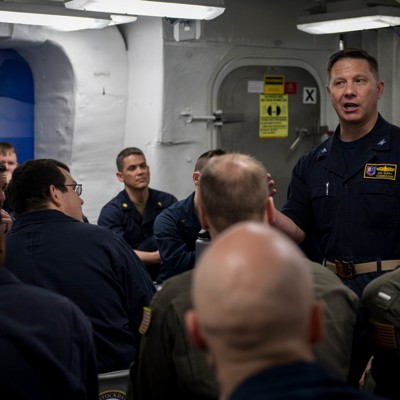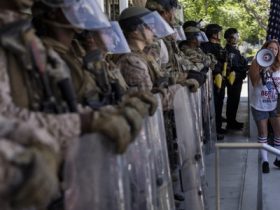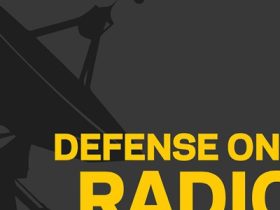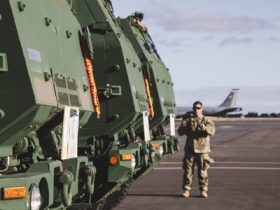I didn’t join the Navy to fight for a country that bans books. I joined to defend one that never would.
I went to the U.S. Naval Academy because I believed in the values laid out in its mission: to develop midshipmen morally, mentally and physically. I graduated proud to swear an oath to support and defend the freedoms enshrined in our Constitution. I believed that a nation leading the post–World War II global order had a responsibility to stand for liberty, not retreat from it. That’s why I served. And that’s why I am appalled by the recent decision to remove nearly 400 books—many addressing issues of race and gender—from the shelves of the Academy’s Nimitz Library.
This is not just an overcorrection. It is a betrayal.
I arrived in Annapolis in the early 1990s. Long before the internet brought the world’s knowledge to our phones, the Nimitz Library was where we went to challenge our minds. I didn’t always agree with what I read there—and that was the point. Higher education isn’t supposed to comfort us. It’s supposed to make us think, to confront discomfort, and to sharpen our judgment for the day we must make hard choices as officers in command.
In 1992, I sat in uniform as our professors walked us through the constitutional complexities of active-duty troops responding to the Los Angeles riots. We studied the rules of engagement and debated civil-military boundaries. We were learning to think critically, even in the grayest ethical terrain.
This is what great military education does. It teaches not what to think—but how to think.
Removing books on identity, race, and gender under the guise of making the institution less “woke” doesn’t just insult the intelligence of midshipmen. It undercuts the very foundation of the officer corps: moral judgment, independent thought, and the courage to act with integrity under pressure.
I served for three decades in the U.S. Navy—commanding ships, leading sailors overseas, and representing the fleet in the Pentagon, on Capitol Hill, and at the White House. At every stage, I believed our strength came not just from our economic or military power, but from our values. That’s why it stings to see an institution I love mimic the practices of the regimes we spent decades confronting: silencing voices, narrowing thought, banning books.
To those defending this decision, I ask: What are you afraid of? That critical thinkers will graduate from Annapolis and lead with empathy and nuance? That future commanders might wrestle with the moral weight of their orders instead of following blindly? If so, I would argue that’s not a weakness. That’s exactly the kind of leader our Navy—and our nation—needs.
F. Scott Fitzgerald once wrote, “The test of a first-rate intelligence is the ability to hold two opposed ideas in the mind at the same time and still retain the ability to function.” The best officers I’ve known live that test every day. Removing difficult books from the shelves of Nimitz Library doesn’t protect future leaders. It hobbles them.
What’s most painful is the silence. From too many alumni. From Navy and Academy leadership. From those who should be standing up for the values they claim to hold dear. But I’m done waiting for someone else to say something.
To the midshipmen at Annapolis: Keep reading. Keep thinking. Challenge ideas—even your own. That’s not disloyalty. That’s courage. That’s leadership.
And to the Naval Academy: Don’t fear discomfort. Fear the day we commission leaders who only know how to follow.
Captain Jon Duffy is a retired Naval officer. His 30-year career included the command of two warships and a squadron of destroyers, as well as policy positions in the Pentagon, on Capitol Hill, and on the National Security Council in the White House.
Read the full article here








Leave a Reply